
Carbot
 This page
This page in German
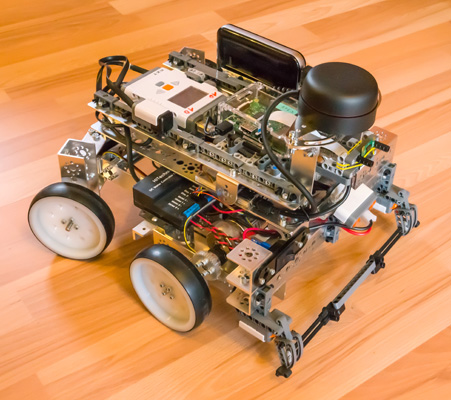
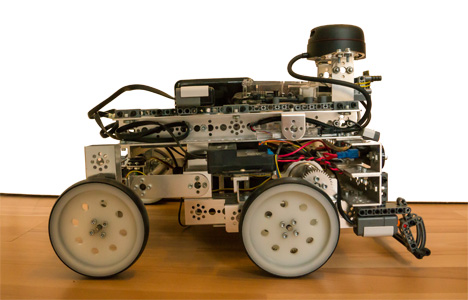
Carbot is an autonomous, mobile robot and provides a platform for developments of methods and algorithms in the area of autonomous robotic. The Carbot was completely designed and assembled at the Nuremberg Institute of Technology, Computer Science Faculty. Its history goes back to 2013. The major goal was to provide hardware, mechanical construction and software environment, to investigate fundamentals of mobile robotic problems. As a special feature: it should move like a car, but also should turn in place. Due to the first property, it gets the name Carbot. It has a weight of 4.7 kg and covers an area of 35 cm x 40 cm. Its height is 27 cm. It can drive with speed up to 31 cm/s. 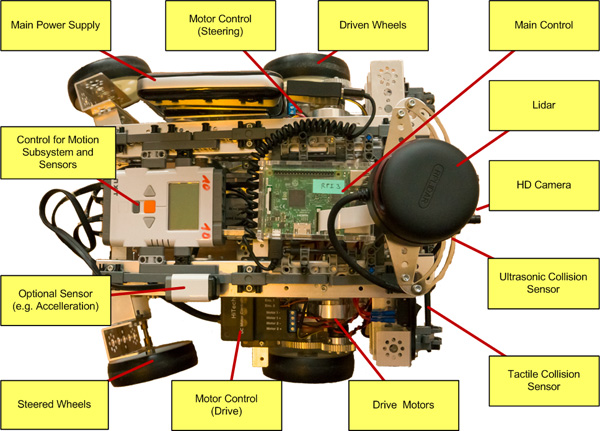
Carbot can execute simple driving commands such as forward, backward, turn or drive curves. It is able to detect obstacle in driving direction based on ultrasound and tactile sensors. With an HD camera it can view in driving direction. In addition, a 360° Laser range scanner can detect obstacles in a range up to 6 m with cm resolution. With these sensors Carbot can build a map of the environment. Navigation and trajectory components are able to plan paths and driving commands to get to targets with minimal effort. 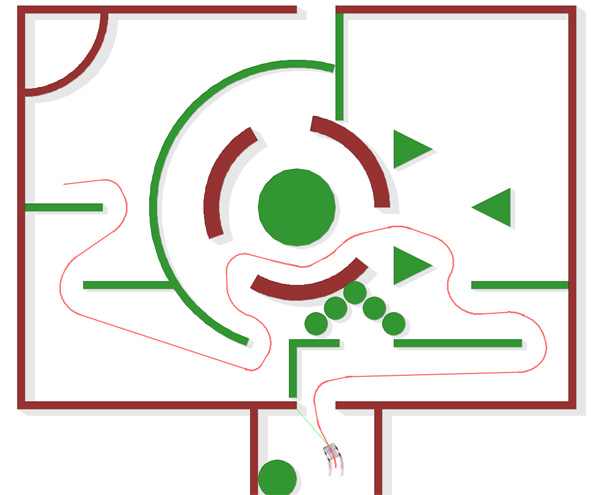
Besides the actual robot, there exists a simulation environment for development and testing software components. The major goal: the generation of robot control programs can significantly be simplified, as many tests can be performed on a desktop computer. Inside the simulator, arbitrary artificial environments can be constructed that would cause significant costs in reality. The simulation is very close to reality; in particular, control programs can be shifted from simulator to real robot without any modification. 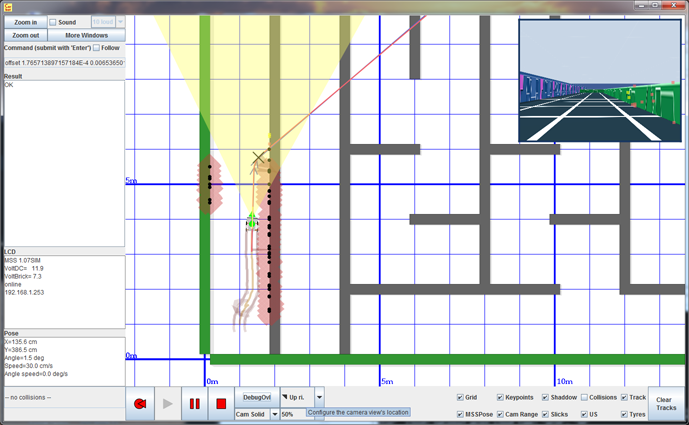
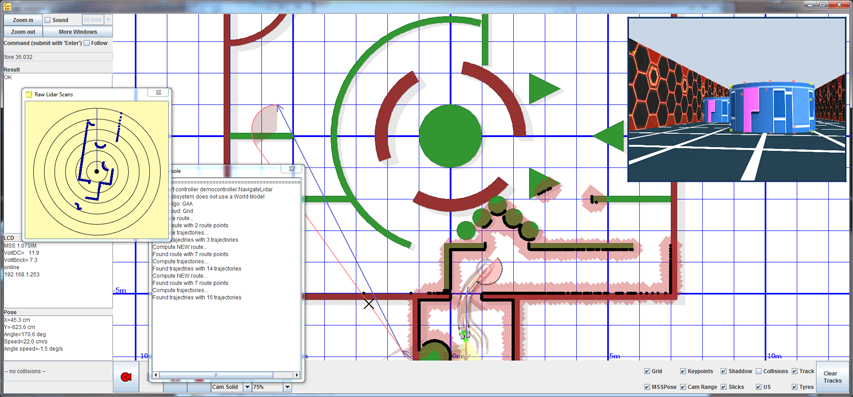
This video shows the simulator executing a navigation application. |
 email
email